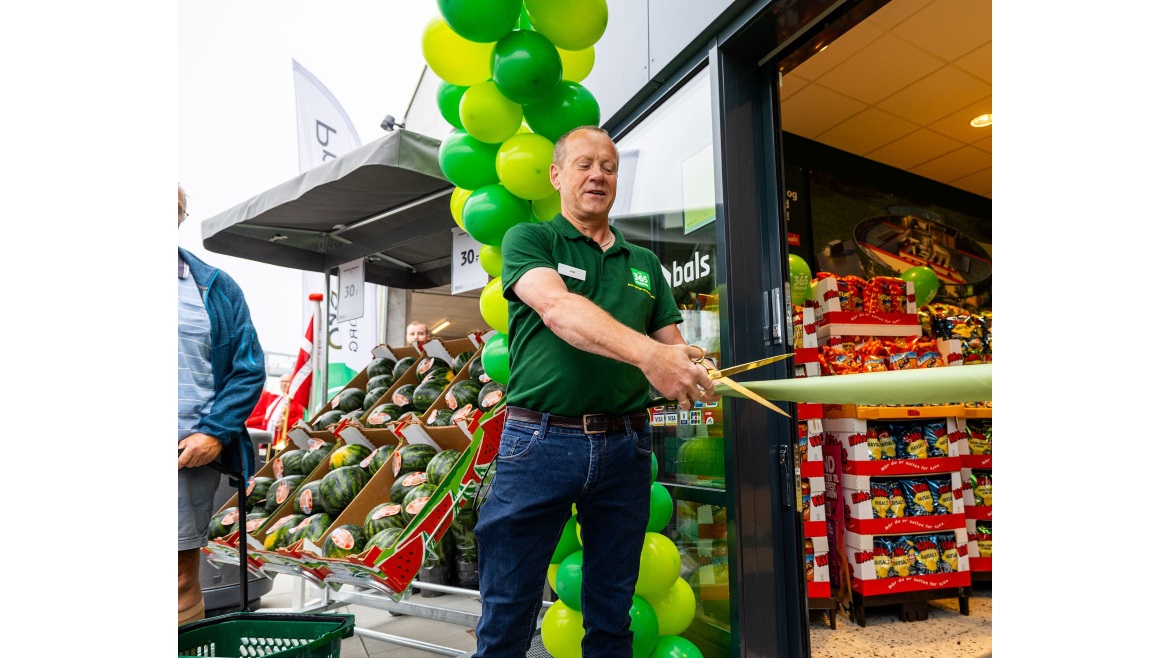NORDBORG, Denmark — A new Smart Store supermarket here will also serve as the Danfoss test center for energy efficiency technology.
The flagship Smart Store, which is powered primarily by solar energy and reuses the heat discharged by its refrigeration systems, is expected to be approximately 50% more energy efficient compared to a typical supermarket with a first-generation CO2 refrigeration system.
“We have developed this new Smart Store supermarket with partners and customers to demonstrate that it is possible to build a climate-friendly and super-efficient facility, using world-class heating and cooling technology,” said Jürgen Fischer, president, Danfoss Climate Solutions, in a press release. “Our new Smart Store proves that the future is now. This supermarket is purpose-built for the world ahead of us, a world of more urbanization, larger populations, greater energy demands, (and) a growing need for cooling and efficient food storage.”
While supermarkets and retail food stores are an integral part of communities around the world, they are also big energy consumers. The average profit margin for a large food retailer is just 1.7%, which puts every operating cost under scrutiny. Energy is an area where significant savings can be achieved with relatively low investment and good payback times. In fact, the U.S. Environmental Protection Agency (EPA) estimates that one dollar (€0.90) in energy savings is equivalent to increasing sales by US$59 (€54).
The range of new solutions in the Smart Store demonstrate the significant savings that can be achieved in supermarkets, with a typical payback time of three to four years. By using world-class heating and cooling technology, the new supermarket will waste less energy and reduce food waste, the company said.
Solar power is the Smart Store’s primary energy source, with 100 kW solar panels on the roof providing green energy to support supermarket operations.
Heat capture and reuse is also vital to the energy efficiency of the supermarket, with a reduction in heating costs of up to 90% expected. The store is outfitted with state-of-the-art heat-recovery units, designed to recover the waste heat from all the refrigeration systems. The recovered heat is used to heat the store and produce domestic hot water, with any additional heat shared with residents of the surrounding town through a district energy network.
Other features include doors on refrigerator and freezer cases that are expected to cut energy use by a third, LED lighting, which uses up to 85% less electricity than incandescent bulbs, and building automation and monitoring.
“Danfoss has reimagined what food retail stores could look like in the 21st Century. For the first time, all of Danfoss’ most cutting-edge technology and energy-efficient food retail solutions are being brought together into one retail site,” Fischer added. “But the new Smart Store supermarket is only the beginning. Because it will also serve as an application development center, a live testing site for new technologies which we hope will inspire food retailers around the world to move towards zero-emissions supermarkets.”


Report Abusive Comment